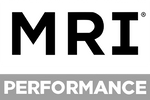Creatine for Brain Health: A Deep Dive into Cognitive & Neuroprotective Benefits
Posted by MRI Performance on 11th Aug 2025
How Creatine Can Help Against Brain Disorders
For years, creatine has been a staple in the supplement arsenals of athletes and fitness enthusiasts, celebrated for its power to build muscle and enhance performance. We’ve come to know it as the fuel for our workouts, the key to unlocking new strength gains, and the partner in our post-gym recovery. But what if we told you that the benefits of this remarkable compound extend far beyond the bicep and the bench press?
Emerging research is painting a new, exciting picture of creatine as a potent neuro-booster, a powerful ally for brain health, and a potential shield against cognitive decline. This isn't just about avoiding "brain fog" on a tough Monday morning; it's about a foundational shift in how we view brain health. In this deep dive, we’ll explore the fascinating science behind creatine’s neuroprotective benefits and its potential role in fighting against various brain disorders.
The Brain's Insatiable Energy Demand
Think of the brain as the body's most demanding organ. While it only accounts for about 2% of our total body weight, it consumes roughly 20% of our daily energy. This massive energy requirement is primarily met by a molecule called ATP (adenosine triphosphate). ATP is the fundamental currency of cellular energy, powering everything from nerve impulses to thought processes.
Here's the problem: The brain's energy needs are so high that it can sometimes experience an "energy crisis," especially during periods of high cognitive load, stress, or in the presence of certain neurological conditions. This is where creatine's unique role becomes clear.
Creatine, in the form of phosphocreatine, acts as a rapid energy reserve. When ATP levels start to dip, phosphocreatine quickly donates its phosphate group to regenerate ATP, effectively acting as a backup generator for your brain cells. By ensuring a steady and reliable energy supply, creatine can help maintain optimal brain function, prevent mental fatigue, and support the brain’s resilience during demanding tasks. This is a core reason why individuals using high-quality creatine like MRI Performance Creatine Monohydrate often report improved focus and mental clarity, even during physically exhausting workouts.
Creatine as a Neuroprotective Shield: More Than Just a Power-Up
Creatine's benefits for the brain aren’t just about providing energy; it’s also a powerful neuroprotective agent. The brain is constantly under threat from a variety of factors, including oxidative stress, inflammation, and cellular damage. Many brain disorders are characterized by these very processes, which can progressively damage neurons and impair function.
Creatine helps combat these threats in several ways:
- Antioxidant Power: Oxidative stress, caused by an imbalance of free radicals, is a major contributor to brain aging and neurodegenerative diseases. Creatine has been shown to have antioxidant properties, helping to neutralize these damaging free radicals and protect brain cells from harm.
- Mitochondrial Support: The mitochondria are the "power plants" of our cells, responsible for creating the vast majority of our ATP. Mitochondrial dysfunction is a hallmark of many neurological conditions. Creatine helps support the health and function of mitochondria, ensuring they can produce energy efficiently and resist damage.
- Reducing Cellular Damage: By stabilizing cellular membranes and regulating key pathways, creatine can help protect brain cells from various forms of damage. This acts like a protective shield, enhancing the brain's ability to withstand stress and injury.
Promising Research on Specific Brain Disorders
While creatine is not a cure and should never be seen as a replacement for conventional medical treatment, a growing body of research is exploring its potential as a supportive therapy for several challenging neurological conditions.
Alzheimer's and Parkinson's Disease: These neurodegenerative diseases are characterized by the progressive loss of neurons. Research is investigating creatine’s ability to protect these vulnerable brain cells. In animal models of Parkinson’s, for instance, creatine has been shown to protect dopamine-producing neurons from damage. For Alzheimer's, studies are exploring its potential to improve mitochondrial function and protect against the buildup of amyloid-beta plaques.
Traumatic Brain Injury (TBI) & Concussion: The immediate aftermath of a brain injury is a period of intense cellular stress and energy depletion. Studies have shown that creatine supplementation before and after a TBI can help to reduce the extent of brain damage, stabilize cellular membranes, and improve cognitive recovery. This is a particularly promising area of research for athletes and individuals in high-risk professions.
Mental Fatigue: This is one area where the benefits are particularly well-established. Research has consistently shown that creatine supplementation can significantly reduce mental fatigue during tasks that require sustained cognitive effort, such as complex problem-solving or multitasking. This is directly tied to its ability to maintain a steady supply of ATP to the brain.
Important Medical Disclaimer
The information presented in this article is for educational purposes only and is based on emerging research. It is not medical advice. Individuals with any diagnosed medical condition, especially a brain or neurological disorder, should consult with their healthcare professional or neurologist before starting any new supplement regimen, including creatine.
Practical Use: Consistency is Key
For both athletic and cognitive benefits, the best practice for creatine supplementation is consistency. The goal is to saturate your body's creatine stores, including those in the brain, and keep them topped up over time. A standard dosage of 3-5 grams of creatine monohydrate per day is highly effective and widely supported by research.
When choosing a creatine supplement, quality and purity matter. MRI Performance Creatine Monohydrate is a trusted choice, offering a high-quality, micronized formula that ensures excellent absorption and effectiveness. Simply mixing a scoop into your water, protein shake, or even a glass of juice each day is all it takes to start supporting your brain and body.
Conclusion
Creatine is proving to be far more than just a muscle-building supplement. Its ability to fuel the brain’s energy demands, protect neurons from damage, and support a wide range of cognitive functions is a groundbreaking discovery. As research continues to unfold, creatine is solidifying its place as a powerful tool for holistic health, benefiting not only our physical performance but also the health and resilience of our most vital organ.
By adding a high-quality creatine monohydrate to your daily routine, you're not just investing in stronger muscles; you're investing in a sharper mind. As always, consult with your healthcare provider to ensure it's the right choice for you.

